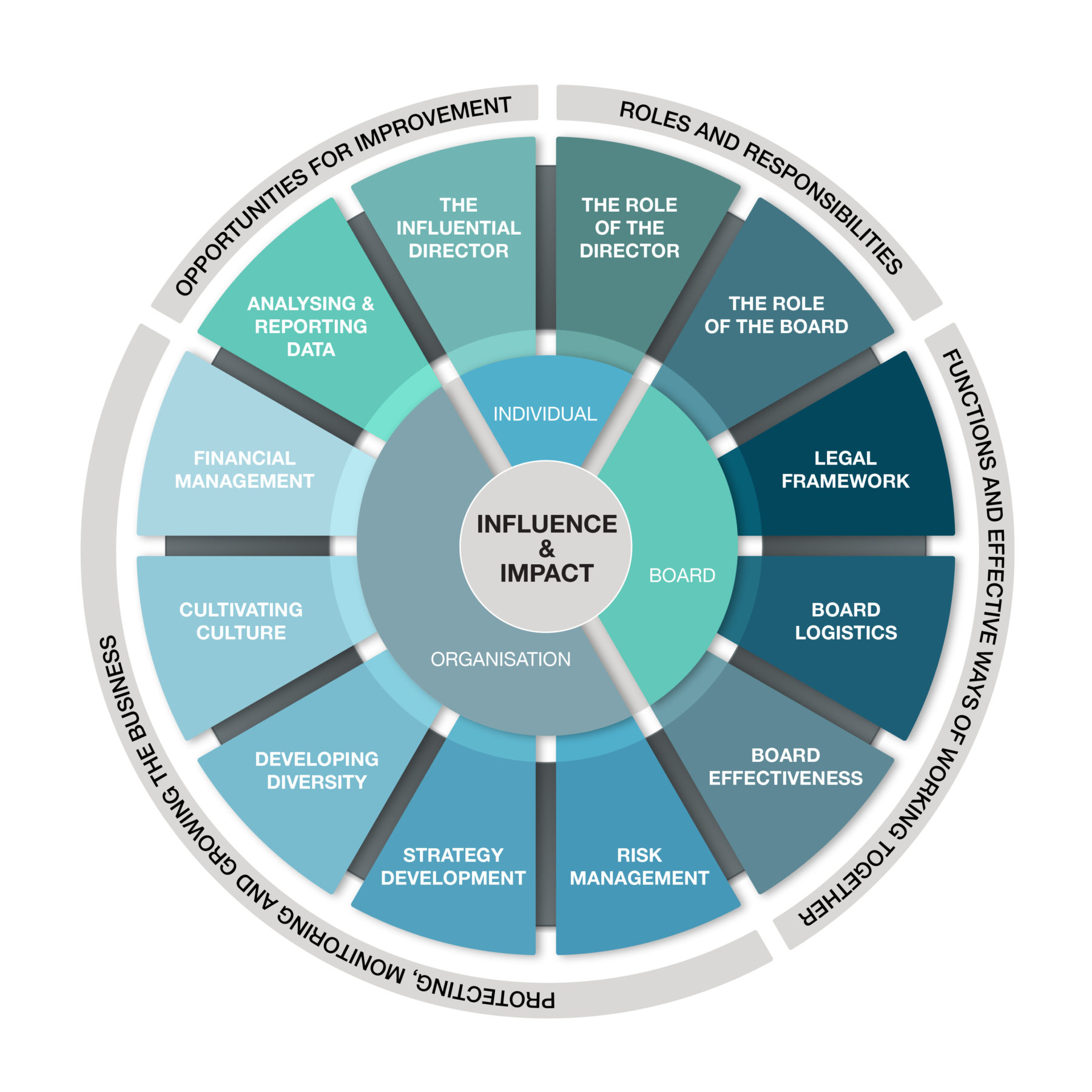How Do You Measure Board Effectiveness?

Effective Board Management Matrix™
'Board Effectiveness Evaluations' or 'Board Performance Reviews' help the board (and interested stakeholders) to understand how productive and successful the board is in the various components of board work.
In order to evaluate 'board effectiveness', a board needs to have established criteria or key objectives to review against. It is too broad to ask "How effective are we?"
The board might measure some or all of the following:
* Meeting Efficiencies (processes, formats, volume of work, frequency, duration, Agenda timings and structure, quality/timing of minutes, etc)
* Quality of Relationships (intra-board, Chair & CEO, board and management, stakeholders, etc)
* Performance (Chair, individuals, composition, committees, business, etc)
* Compliance (systems, culture, monitoring, WHS, risk, etc)
* Conduct (leadership, role models, code of conduct, decision making, managing conflicts, etc)
The first step is to agree what to evaluate. The subsequent step is to decide the most suitable methods for the evaluation. The methods can be objective (things that can be counted or ticked off such as how often board meetings run to time) subjective (views, opinions and the intangible such as how well the CEO is managed) or a combination of both.
Objective evaluations are easier, since they can be collated from data which is already available. Subjective evaluations are more difficult. Surveys and interviews can be conducted either anonymously or known. Anonymous data gives participants the opportunity to be frank and honest. Open activities can result in better quality information as the participants can be asked follow up questions. For subjective evaluations you can consider a 'on a scale of 1-10' or 'which best describes' types of questions, or you can ask for free-flow feedback.
Objective data is accurate and reliable and subjective data can reveal risks and opportunities.
Benchmarks are established in advance (at the beginning of the period being evaluated) and the evaluation is performed at the end of the period. The board must be willing to accept the results and to take action based on the findings. Inevitably, board effectiveness evaluations will reveal where things are going wrong and where things are going well; both are opportunities for improvement.
The board might change the areas it measures and the board effectiveness benchmarks each year based on the needs and priorities of the business and the board. There may be additional board effectiveness and board evaluation requirements stipulated in the relevant legislation for the business and in third-party contracts such as in funding agreements.
The board effectiveness evaluation can be conducted formally (such as an annual review), informally (ongoing at every meeting), in-house (by the board) or externally through Board Consultants. The board decides what it will measure and the frequency of the board evaluations and should formally document a 'Board Performance Review Policy'.
The Effective Board Management Matrix™ is the framework for board evaluation, performance development resources and corporate governance training materials at the Board Coaching Institute.
The matrix breaks the board work down into roles and responsibilities, the requisite functions, the core mechanics, the intra-board and board-management relations and the key driving principles of board performance.
The segments cover the 'growth and performance' and 'compliance and monitoring' responsibilities and break these down into individual, board and business components. All or any of these can be used for Board Performance Reviews.
This matrix enables our participants to take a deep dive into each of the segments and to understand the correlation between each of the elements. Changes made in any of the segments will result in changes elsewhere in the organisation (every action creates a reaction).
THE EMERGENT DIRECTOR: The first 4 segments teach new and emerging Company Directors the mechanics of the boardroom within the legal context. It also provides professionals with an opportunity to test out the waters before committing to the full 'Effective Company Director" course.
THE EFFECTIVE DIRECTOR: The entire matrix of 12 segments provides professionals with a comprehensive understanding and the practical skills to work in the boardroom.